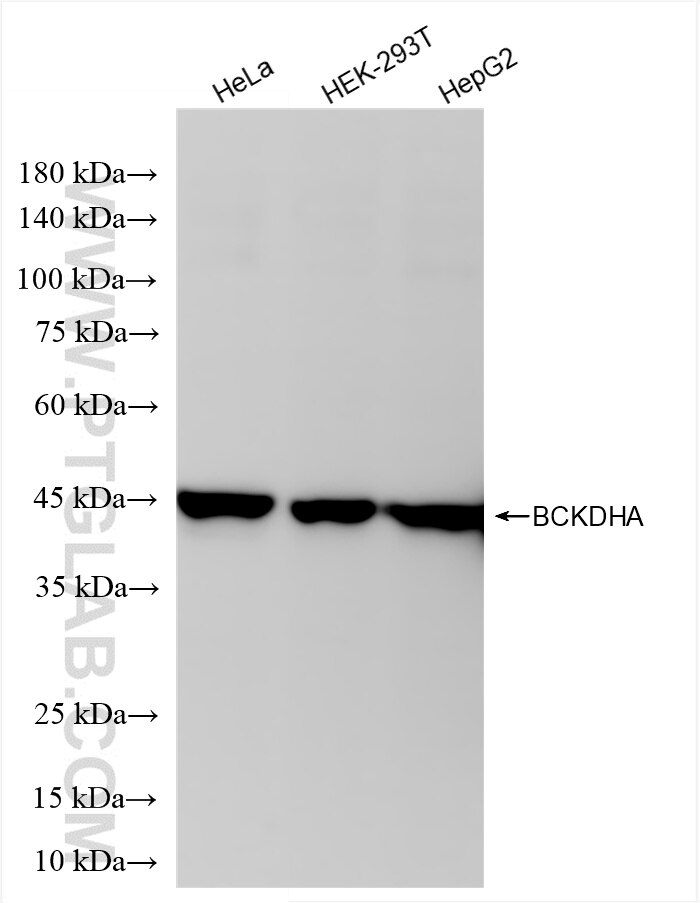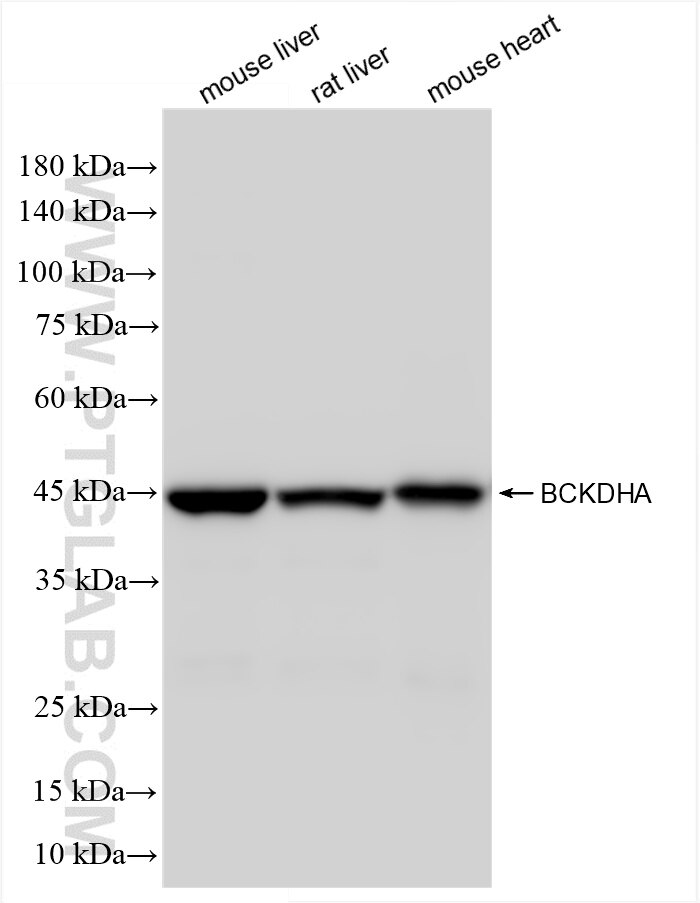BCKDHA Rekombinanter Antikörper
BCKDHA Rekombinant Antikörper für WB, Indirect ELISA
Wirt / Isotyp
Kaninchen / IgG
Getestete Reaktivität
human, Maus, Ratte
Anwendung
WB, Indirect ELISA
Konjugation
Unkonjugiert
CloneNo.
250051G11
Kat-Nr. : 85799-3-PBS
Synonyme
Geprüfte Anwendungen
Produktinformation
85799-3-PBS bindet in WB, Indirect ELISA BCKDHA und zeigt Reaktivität mit human, Maus, Ratten
| Getestete Reaktivität | human, Maus, Ratte |
| Wirt / Isotyp | Kaninchen / IgG |
| Klonalität | Rekombinant |
| Typ | Antikörper |
| Immunogen | BCKDHA fusion protein Ag32613 |
| Vollständiger Name | branched chain keto acid dehydrogenase E1, alpha polypeptide |
| Berechnetes Molekulargewicht | 50 kDa |
| Beobachtetes Molekulargewicht | 42-50 kDa |
| GenBank-Zugangsnummer | BC008933 |
| Gene symbol | BCKDHA |
| Gene ID (NCBI) | 593 |
| Konjugation | Unkonjugiert |
| Form | Liquid |
| Reinigungsmethode | Protein-A-Reinigung |
| Lagerungspuffer | PBS only |
| Lagerungsbedingungen | Store at -80°C. 20ul Größen enthalten 0,1% BSA. |
Hintergrundinformationen
branched chain keto acid dehydrogenase E1, alpha polypeptide (BCKDHA), the gene encoding the regulated subunit of BCKDC was only one of two primary susceptibility genes identified that affected the risk of both type 2 diabetes mellitus (T2DM) and obesity (PMID: 25287287). BIX01294 transcriptionally downregulated the transcription of BCKDHA, which is essential for fueling the tricarboxylic acid (TCA) cycle. Studies have shown that KDM3A, a Jumonji histone demethylase, epigenetically regulates BCKDHA expression by binding to the BCKDHA gene promoter (PMID: 34876693). Moreover, at least four genes including BCKDHA, branched chain keto acid dehydrogenase E1, beta polypeptide (BCKDHB), dihydrolipoamide dehydrogenase (DLD), and dihydrolipoamide branched chain transacylase E2 (DBT) have been reported to be the causative gene for Maple syrup urine disease (MSUD) (PMID: 34187135).





